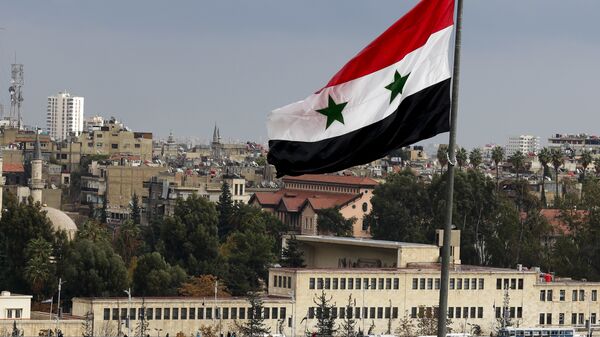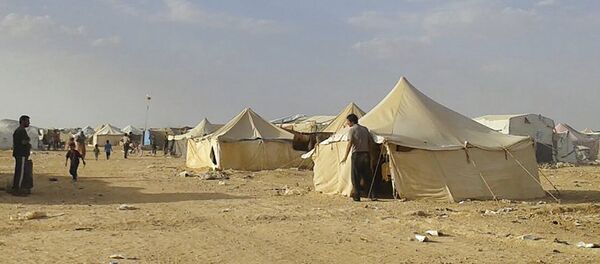The majority of plants and factories in Syria have resumed operations as most parts of the country have been liberated from terrorists, Industry Minister Ahmed al Hamu told Sputnik Arabic.
"Recently, a fertilizer plant in the province of Homs resumed production, after being shut down for two years. Its current daily capacity is 350 tons of superphosphate and is expected to be increased by 25 percent," al Hamu said.
READ MORE: As Syrian Army Cements Victory, Foreign Investors Seek Role in Post-War Economy
According to the minister, the timing was right for the plant in Homs to resume operations as the new sowing season is coming.
"Its production capacity will be increased within a month," he said.
The minister also said that it was possible to restart the fertilizer plant only after supply of primary materials had been established, which required comprehensive preliminary efforts, including establishing coordination with factories from related industries.
Al Hamu also praised the people working at the factory, who returned to work despite the difficulties of wartime.
The ongoing Syrian conflict that broke out in 2011 has caused the breakdown of the country’s social and economic systems and devastated the infrastructure.
READ MORE: What Role Can China Play in Post-War Economic Reconstruction of Syria?
In July, a report by the World Bank calculated that the conflict has caused Syria to lose some $226 billion in GDP. According to other estimates, the country's economy has lost over $300 billion.
Syria is also attracting the interest of private investors from different parts of the world. In August, the Damascus International Fair was relaunched and attracted over 2,000 delegates from different countries, including potential investors.
Syria has been engulfed in a civil war since 2011, with government forces fighting numerous opposition factions and terrorist groups, including Daesh and al-Nusra Front. The international community, including Russia, has taken a number of steps aimed to settle the crisis, including via talks in Geneva and Astana.




